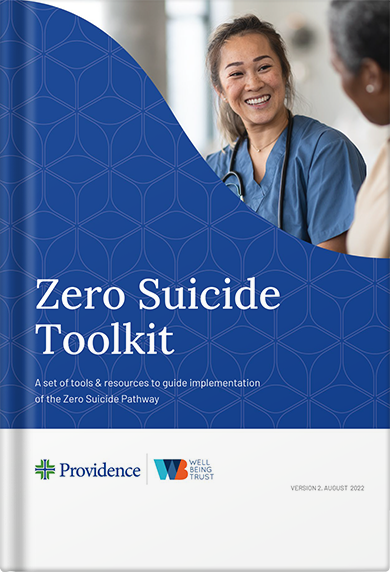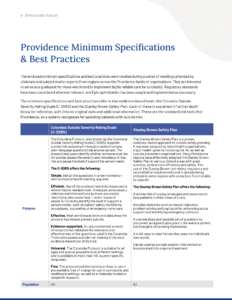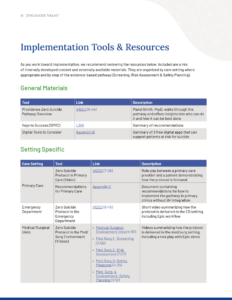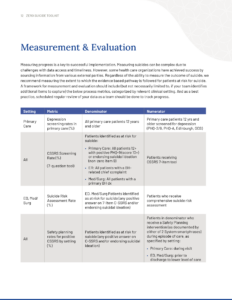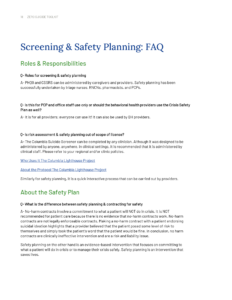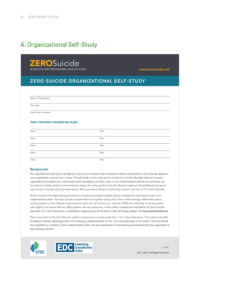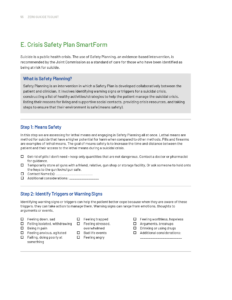Why It’s Needed
Suicide is one of the leading causes of death and a worldwide public health crisis. Health care systems need an efficient, effective, and evidence-based approach for patients experiencing suicidal thoughts. By taking a focused approach across the healthcare system, patient safety can be improved and stress among care teams reduced.
Goals
- Support clinical teams in all settings in implementing highly reliable care to patients who are experiencing suicidal ideation.
- Improve the caregiver experience by providing tools, designed to ease their way.
- Reduce variation in clinical care delivery across the system by equipping caregivers with simple, efficient, and effective tools and evidence-based best practices.
- Provide improved suicide care for patients.
Guiding Principles
- The toolkit leverages content created by the multi-disciplinary Providence Zero Suicide Focus Group and points to materials from national thought leaders, including the Suicide Prevention Resource Center, the Columbia Lighthouse Project and others.
- The foundational belief of Zero Suicide is that suicide deaths for individuals under the care of healthcare systems are preventable. For systems dedicated to improving patient safety, Zero Suicide presents an aspirational challenge and practical framework for system-wide transformation toward safer suicide care. *
- The three main areas that constitute the foundational evidence-based care pathway for patients experiencing suicidal ideation are: screening and identification, risk assessment and safety planning.
* About | Zero Suicide (edc.org) Education Development Center
Selected Resources
Dive directly into the playbook for specific guidance on the following areas:
